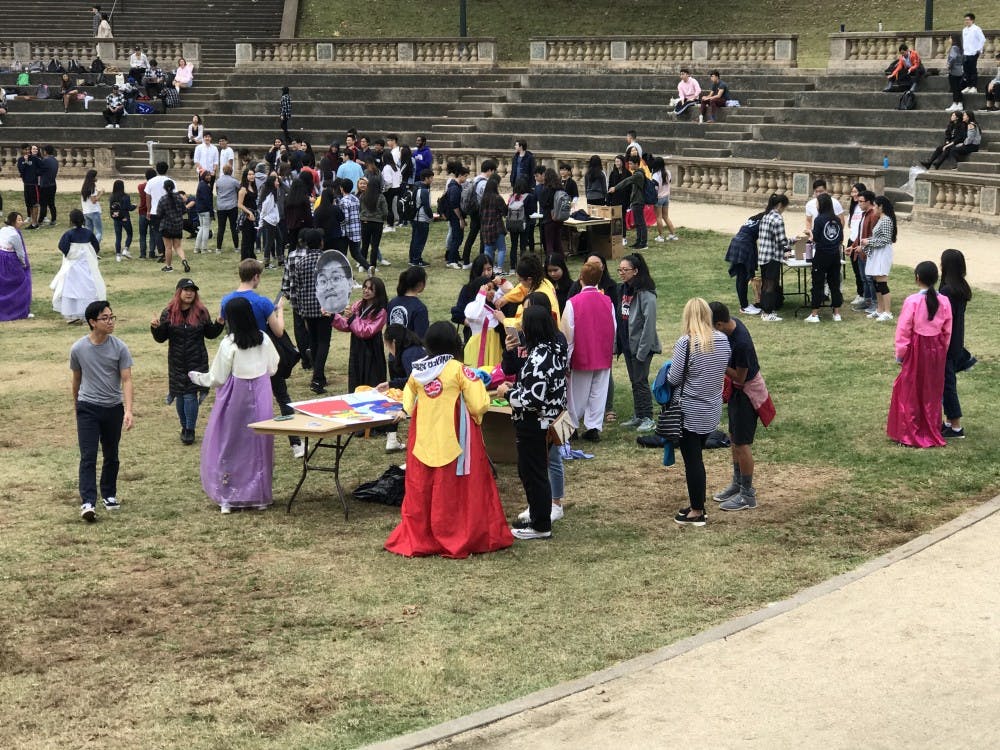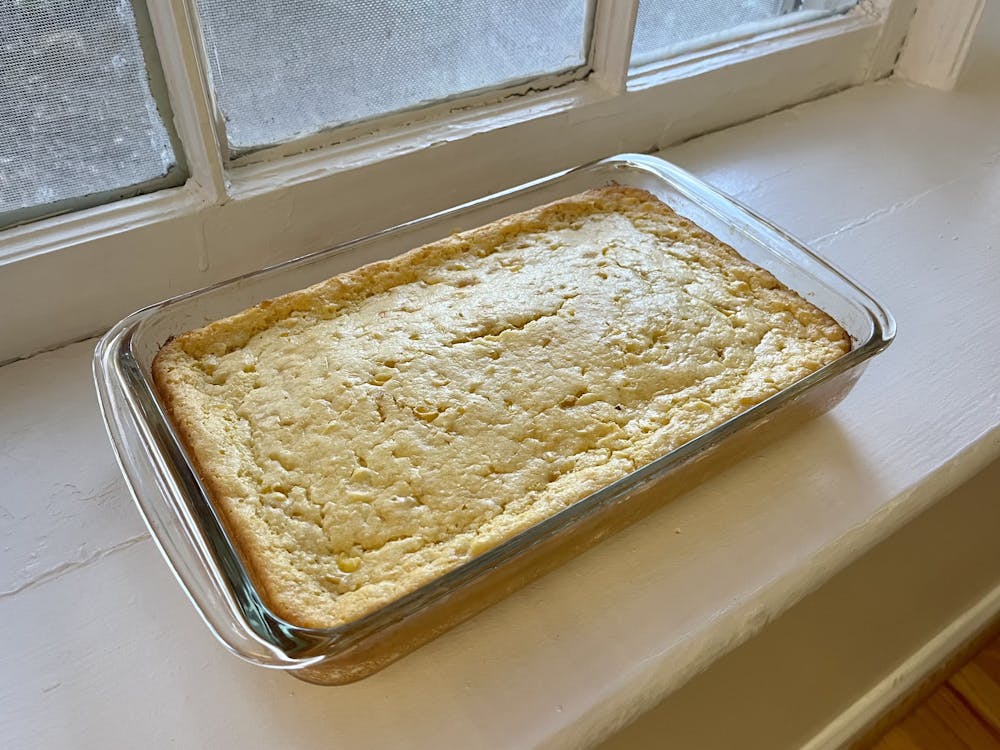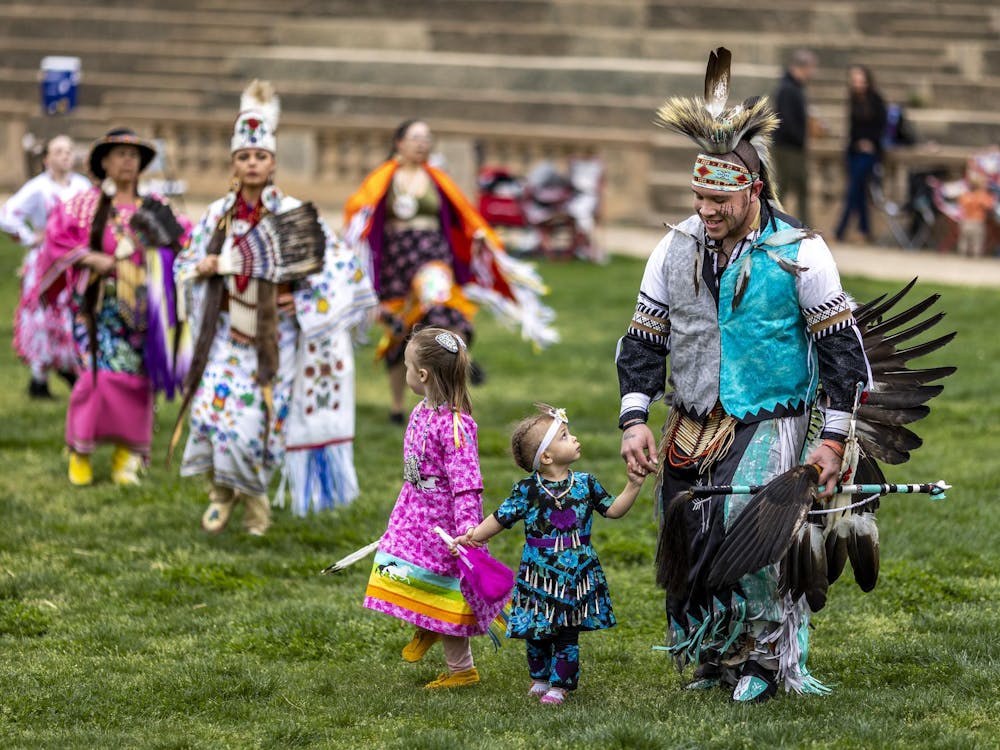As dancers from the University’s Korean Student Association took the stage at the McIntire Amphitheater Saturday afternoon, shouts and cheers echoed from around the concrete steps. The KSA dancers received an enthusiastic response as they showcased their choreography and culture simultaneously.
Korea Day, hosted by the KSA, is a day of cultural celebration that also promotes KSA as an organization. The event attracted nearly 200 attendees. Ardean Kim, third-year College student and president of KSA, hopes that Korea Day raised awareness about the KSA and cultural pride.
“My ideal result is that people will notice us and people will understand that the Korean Student Association does exist at U.Va.,” Kim said. “We have an identity here. We are proud to have some of these dances. We are proud to have some of these foods and traditions.”
Korea Day also provided the opportunity for students to discover an interest in Korean culture. Kwangmin Yoo, second-year College Student and KSA culture co-chair, wants other students to recognize the organization as all-inclusive.
“We accept all races,” Yoo said. “We only call ourselves KSA because we're bringing out Korean tradition and culture to the U.Va. community. It's not for Koreans students to just come together and isolate themselves. We want to have everyone come and join, anyone who appreciates and enjoys Korean culture.”
Yoo and Alicia Wang, second-year College student and culture co-chair, worked since September to organize the event. The day consisted of booths with traditional Korean games and information about Korean culture, performances and food from local Korean restaurant DOMA.
Attendees could pick up a free raffle ticket and a punch-card at a table in the center of the Amphitheater. Participants were encouraged to visit each booth and learn about a Korean tradition or play a game. Yejung Jeong, first-year College student and KSA member, explained the use of the punch-cards to arriving guests.
“Guests have to go around to all the booths and get as many signatures as they can and wait until the end until after the performances so that they can [redeem their punch-card for] free food,” Jeong said.
The booths around the Amphitheater consisted of trivia games like “Jeopardy!” about Korean pop culture, photo stations with traditional Korean dresses called hanbok, Korean games and informative posters about holidays and customs. Participants played games like Jegi Chagi (a game resembling hacky-sack), Tuho (stick throwing), Gonggi (a children’s game involving stone tossing and catching) and Ssireum (a type of Korean wrestling).
Attendees also learned about Korean pop culture through posters about dance, television, music and holidays. At one booth, Liam Whitted, KSA social co-chair and second-year College student, compared Korean romantic holidays to American traditions. One example of a holiday was White Day, a day that occurs one month after Valentine’s Day that involves boys giving gifts to their love interests.
“Valentine's Day [in Korea] is pretty much the same in the U.S., except there's this condition where the girl has to give the guy the presents, candy [and] stuff like that,” Whitted said. “For White Day it's the opposite, the guy gives the girl a gift.”
After attendees walked around to the booths, performances started on stage. Both KSA members and external groups performed. The acts included singing groups, The Hooligans: Breakdancing Club, Tae Kwon Do Club and modern dance crews APEX and K-Edge. Members of KSA also performed a traditional dance, a modern dance and an additional dance by the officers of the organization.
The modern dances and officer dance were more upbeat performances to modern Korean pop music, while traditional dances were slower to classical music, and dancers wore hanbok attire.
“I'm the choreographer for the officer dance,” Wang said. “Most of these dances were held actually last week at Culturefest but the officer dance is the only one that is supposed to be a secret until the day of. So it's more of a surprise and it's supposed to be a crowd pleaser.”
The crowd seemed pleased with all of the acts, cheering loudly for each performance. As the Taekwondo team split wood with kicks and punches and the KSA traditional dancers spun with large fans, people gathered along the outside of the stage and around the theater to watch.
Many guests came primarily to see the performances. Second-year College student Abby Legear searched for friends on stage.
“I came to support my friends who are coming tonight,” said Legear. “I like how inclusive it is. There are way more organizations and groups that perform a lot of different Korean arts here than you might expect. It's kind of nice to see people come together.”
Second-year College student Megan Lee also came to support friends on stage.
“I really love the variety of performances and the activities that let you see different parts of the culture,” said Lee. “And of course, there's food at the end.”
After the performances, people flooded the grass of the Amphitheater towards the tables of rice and noodle dishes, chicken, barbecue and sodas to share food together and bring an end to the event.





